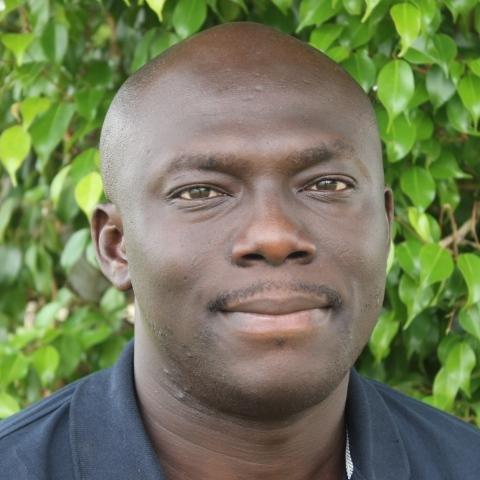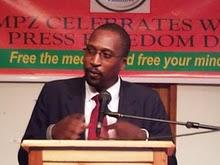The strange tale of Emeka and the unwanted election – By Elnathan John

 All his adult life, Emeka wanted to get married on February 14th. He first came close two years ago with his previous fiancée. But it was not a weekend and her parents thought he was crazy to even suggest getting married on a Thursday. When they broke up he probably saw it as a blessing in disguise, an answer to his prayers. He met someone new, and when she and her parents said yes, he proposed February 14th, 2015. It was almost one year away and it would allow him both to stabilise and live his dream: get married on Valentine’s Day.
All his adult life, Emeka wanted to get married on February 14th. He first came close two years ago with his previous fiancée. But it was not a weekend and her parents thought he was crazy to even suggest getting married on a Thursday. When they broke up he probably saw it as a blessing in disguise, an answer to his prayers. He met someone new, and when she and her parents said yes, he proposed February 14th, 2015. It was almost one year away and it would allow him both to stabilise and live his dream: get married on Valentine’s Day.
Shortly after, the Independent National Electoral Commission (INEC), announced February 14th as the date for the presidential elections. Emeka was not amused. Perhaps he wondered if it was a sign, that this new fiancée was not God’s plan for his life. Perhaps not. It is difficult to say from just reading his thoughts on Twitter.
The date made Nigerians creative. Hundreds of articles were written using the Valentine metaphor:
The day of love will discourage violence.
On February 14 Nigerians will show their love.
February 14: For the Love of Nigeria.
Expressing Love at the Polls.
What’s Love Got To Do With Politics?
The jokes were retold several times over and Nigerians, as if driven by the weight of the day’s importance, agreed to listen to them without getting bored. The opposition especially saw it as a sign. February had most of the letters of their presidential candidate’s name and so their most popular campaign slogan became “FeBuhari 14″. It was a victory made in heaven.
The reasons for the Nigerian president’s backdoor postponement of the elections using the army will be debated for years to come. For now, most people are convinced that the army’s decision to begin a major onslaught on Boko Haram on the day slated for elections was a sign that the incumbent was afraid of losing the elections. Perhaps the president is a very superstitious man. This after all is Nigeria, where people still hide details of their international trips from their neighbours for fear someone might use juju to somehow truncate their plans.
Everyone who has had contact with Mr Goodluck Ebele Jonathan (the fact of his having a PhD has recently been contested by no less than his former mentor and benefactor, ex-president and army general Olusegun Obasanjo) will tell you he is an unsophisticated man, the average Nigerian if you like. Every interview he gives reinforces this. It is not impossible that in one of the many places where he has gone to for a spiritual connection, he has been told that February was an unlucky month for him because of the coincidence with his opponent’s name and that to ignore it was to flirt with being the first incumbent president to lose an election.
Whatever the case, the official story is now permanently a part of Nigerian history: the army is unable to provide from its approximately 200,000 troops the personnel required to conduct a National election because it is busy fighting Boko Haram and somehow, since the war began five years ago, this is the best time to defeat the insurgents. “FeBuhari 14″ has since given way to “March4Buhari” and footprints have now appeared in many posters.
Emeka must have been devastated that when it was shifted, the governorship elections now coincided with his April wedding date. Again, it is not clear from reading his posts on social media if he is the type of person to break up with a fiancée because of an ominous sign. Apparently, it is easier to shift a wedding further than it is to shift it closer, because he might have brought it forward to his dream date if he could. Emeka has since begun consultations with his in-laws to find a new date.
The Naira has been in a free fall, especially since the postponement was announced. The prediction from many financial analysts is that it will keep falling until Election Day. Locally, our massive appetite for imports means that many prices will go up. It also means that if Emeka decides to hold his wedding before Election Day, he will likely pay more for the wedding feast. Emeka will not be amused.
Gladly, there is more frustration than anger on Nigerian streets and many have chosen to complain than violently protest. Not that Nigerians have a robust culture of protest. It is just that there has been unprecedented interest among citizens in the choice of a president in these elections and with the fervour with which Nigerians were discussing their political leanings; one might have predicted that any attempt to shift the elections might have resulted in widespread violence.
Many foreign think-tanks, researchers, journalists and other Nigeria watchers have predicted post-electoral violence. If there is no widespread violence after the new election dates, their credibility as Nigeria experts might take a slight hit. The hope is that it doesn’t. (Not that violence should happen, but that people don’t stop simply trusting their opinion because violence doesn’t happen).
The fervour with which a lot of Nigerians have approached the elections might wane a bit but it is unlikely to die. Many more Nigerians are using the new six week window to collect their permanent voters cards without which they cannot vote. Of course, some of the 68 million registered voters are collecting them because it is a free identity card in a country where most official means of identification – driver’s license and international passport – cost at least 30 dollars. (Most of Nigeria’s 167 million people live on under two dollars a day).
Nigerians will be relieved when the elections happen. Most people who work do so in the informal sector and cannot afford many more down days. The foreign journalists with short visas who have to brave the torturous Nigerian embassies around the world a second time will also be relieved. Emeka however, will likely be irritated for a long, long time.
Elnathan John is a satirist, novelist and recovering lawyer. @elnathan







Nice one.
Emeka has really suffered.
Regards
Edwin